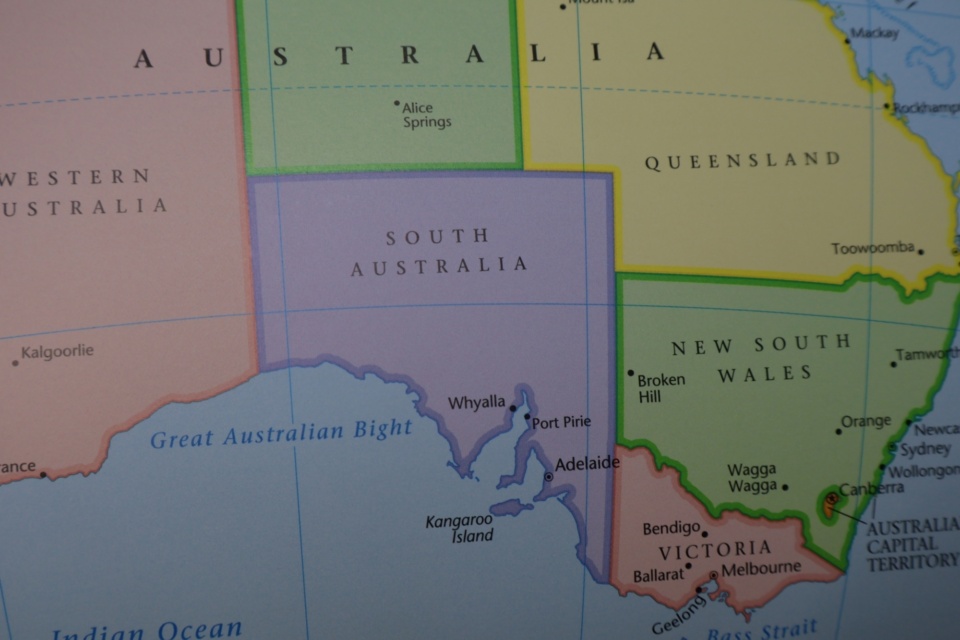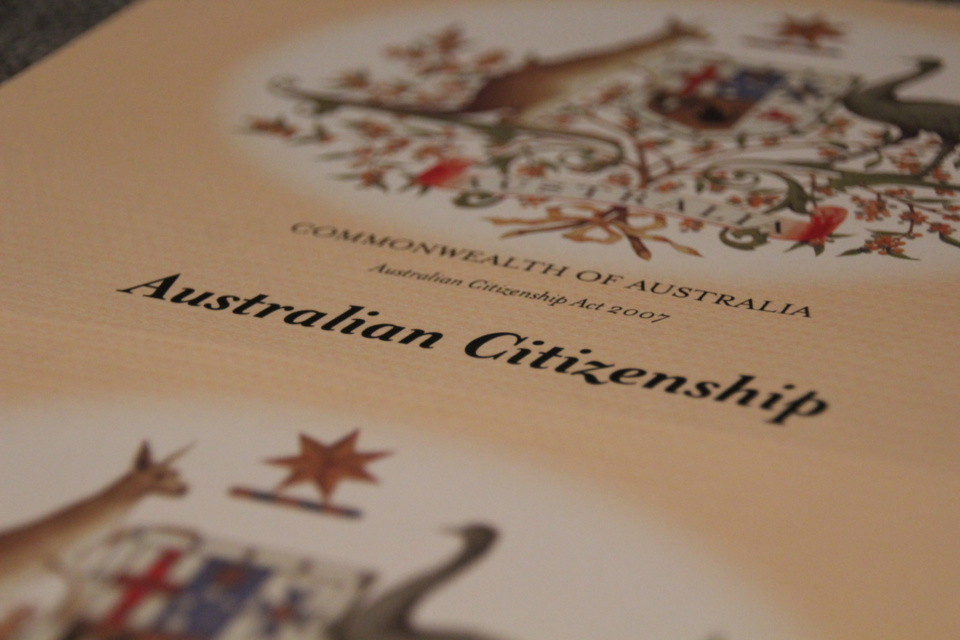
One Nation’s chances as a dominant conservative party are piñata-like
Posted on 11 Feb 2026
Opinions polls insist Pauline Hanson's fortunes are on the rise, but it is likely that enthusiasm…
Posted on 21 May 2024
By Deborah Smith

Donations via cheque are the lifeblood of many charities and must be protected at all costs, says Deborah Smith, partnerships manager for the Community Council for Australia.
Late last year the Australian Government released a consultation paper titled "Winding down Australia’s cheque’s system."
The Community Council for Australia was recently asked to speak with Treasury about the impact on charities.
What we really needed to talk about was the intent of the policy change, the impact on people and community, the policy intent of the change and the kind of society we want.
This change is about banks walking away from a service they no longer want to support – and government seeking to mitigate the damage on people and community by "supporting transition" over the next several years.

It’s about profit vs social licence, productivity vs leaving-people-behind and government’s role in ensuring all Australians have equitable access to financial services.
Let's look at the impact on charities.
Charities are in the business of engaging with people and making it as easy as possible to give. Sure, charities would love to convert every donor to a monthly giving program – but that’s not what works for all the people in our community who take up the invitation to donate, to engage with charities, and to make a contribution to strengthening their communities and creating the kind of change they want to see in the world.
The feedback from charities large and small to CCA was clear and immediate and is consistent with the findings of the Fundraising Institute Australia’s (FIA's) survey of its members. Removing cheques could see the loss of many millions of dollars in giving.
FIA found that 30% of fundraising comes in via cheques. Some charities told us cheques equate to 40% of their donations – and they know they are far from alone.
“We must keep cheques longer,” said one charity. “We are deemed a ‘large’ charity ($12 million annual turnover). 60% of our revenue comes from fundraising from individuals (campaigns, giving, appeals). About 40% of all our donations arrive by cheque. This would be a massive problem – not just for volunteer-run charities and community groups, but for larger ‘established’ charities like us. Our experience is common.”
Other large charities who have worked with their donors over the past few years to proactively support giving alternatives to cheques are still finding that cheques are an important and significant part of their income.
In one example, more than 4,500 cheques last year alone accounted for $1million in donations. Disabling cheques will reduce income and that will have a big impact on charities and the communities they serve.
Other charities highlighted that online banking and donations were dependent on connectivity which isn’t always reliable in regional and remote parts of Australia.
Another charity reported occasions when power failure made doing business with credit cards or via phone impossible.

"The bottom line is that people want to be part of their communities and retain a way to authorise transactions without being forced into a digital world."
The Treasury’s discussion paper itself shows that Government is aware of why cheques remain important to Australia and Australians:
“Although cheques are no longer widely used, there are some cohorts of the community who continue to rely heavily on them. These cohorts, which include older and more vulnerable Australians, those living in areas with unreliable digital connectivity, or with limited digital proficiency or trust, may have a strong personal preference or need to use paper-based methods of payment.”
People use cheques because they:
According to Treasury, increased incidence of cybercrimes, scams and fraud has also eroded some public confidence in digital alternatives.
It’s almost a joke to read that curbing fraudulent transactions is a reason for forcing more people – particularly vulnerable Australians who the data tells us are at most risk of scams – into the digital world to conduct their finances.
Of the 27 million cheques worth $317billion transacted in 2022, 400 (worth a total of $2.4 million) were fraudulent according to Treasury figures.
Meanwhile, Australians made 601,000 scam reports last year with losses totalling lost $2.7 billion, according to the Australian Competition and Consumer Commission (ACCC).
Perhaps instead of removing cheques, we should be taking a leaf out of the UK’s book: there banks will soon be responsible for reimbursing their customers for scam losses transacted through their gateways.
Discontinuing cheques is a problem for charities and community groups, because it’s a problem for our donors and our volunteers.
The latest ACNC Charities Report tells us that 50% of the 60,000 registered charities rely solely on volunteers – as do hundreds of thousands of community groups.
We also know that most charities are small (65%) and have revenue of under $250,000, and a third of all charities operate on less than $50,000 annual revenue. These are the charities and community groups in need of support for digital transformation, digital inclusion and digital capacity building.
The 2023 Digital Technology in the Not-for-Profit Sector report revealed that less than one quarter of NFPs have effective processes to manage information security risks. Unsurprising, then, that there are still a lot of charities, community groups and volunteer treasurers who feel safer writing cheques when it comes to paying bills.
If we think for a moment about the value of giving, it’s clear that the social impact of discontinuing cheques is more significant than the impact on charity income and operation – as drastic as that will be.
Discontinuing cheques – leaving people behind on the altar of profit and productivity - will undermine the engagement and connectivity at the heart of our communities.
It means taking away an avenue of independence and social engagement from vulnerable Australians, not to mention undermining the very wonder of giving for many in our community, which is about so much more than a financial transaction.
Writing a $20 cheque to support a charity represents taking a personal and active role in our communities and in creating the kind of Australia we want to live in. It gives agency and empowerment.
It might well lead to a walk to the local post office, a conversation, and engagement with a charity or community group. We should be promoting social engagement and inclusion, not finding new ways to exclude people.
The bottom line is that people want to be part of their communities and retain a way to authorise transactions without being forced into a digital world.
The Treasury seems to be looking toward the expanded role Australia Post might play, with post offices becoming service hubs with personal service in local communities providing some of the essential services people and communities rely on.
This approach sounds a bit like the good old days when the Commonwealth established a government-owned bank to provide access to the banking services the Australian community needs, in the heart of our communities...
It’s time for the banks to step up to their role in an inclusive society and accept their responsibility and liability for stopping the scammers from using the digital gateways they control, to make our digital financial world a safe place – like they must in the UK.
It’s time for Government to hold our banks to account as the essential services they are – not able to simply walk away and leave people and communities behind. They operate with a social licence and enjoy significant enabling policy from government.
It’s time that came with obligations to community.
It’s time for government to value the role and contribution of charities, volunteers and community groups.
It was good to see this Treasury discussion paper acknowledge the impact on charities of phasing out cheques on charities. Now to do something about it.
Deborah Smith is partnerships manager at the Community Council for Australia.
We're proud to take a stand on progressive issues. Here's a taste of our commentary.

Posted on 11 Feb 2026
Opinions polls insist Pauline Hanson's fortunes are on the rise, but it is likely that enthusiasm…

Posted on 28 Jan 2026
This year’s Adelaide Writers’ Week began with the cancellation of a talk by Palestinian-Australian…

Posted on 17 Dec 2025
Posturing by the US president about Europe's immigration policies, even warnings of future…

Posted on 03 Dec 2025
If you wanted an example of the problems inherent in federal systems, you couldn’t do better than…

Posted on 19 Nov 2025
When it comes to loyalty to car brands, it can be confusing who we should support, and, even more…

Posted on 05 Nov 2025
Before the Prime Minister gets too excited about his recent meeting with the American President, he…

Posted on 14 Oct 2025
The idea of "long term" is not something that sits well in the social media era, yet governments…

Posted on 30 Sep 2025
I am proud of what Our Community, and its exceptional team, have achieved in the past 25 years. As…

Posted on 16 Sep 2025
Happy Australian Citizenship Day! To mark the occasion, Our Community leader Denis Moriarty takes…

Posted on 02 Sep 2025
Words live, evolve, and sometimes die. Some words are invented from scratch, some are old words…

Posted on 26 Aug 2025
The cost of the National Disability Insurance Scheme (NDIS) is climbing relentlessly – $44 billion…

Posted on 04 Aug 2025
The new leader of the Liberal Party, Sussan Ley, wants to increase the proportion of women…